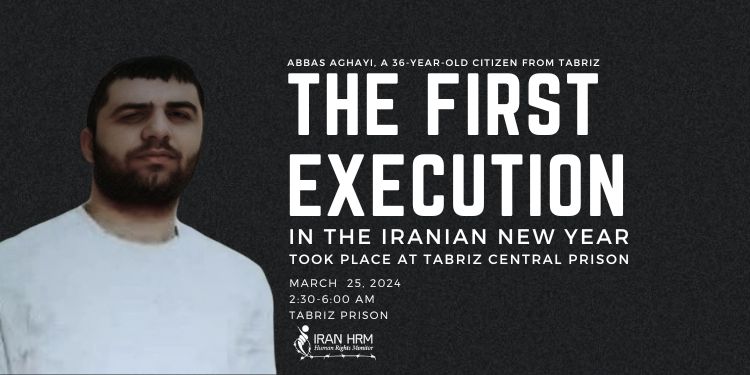On the early morning of Morning, March 25, 2024, the death sentence of Abbas Aghayi, a 36-year-old citizen from Tabriz, was carried out in Tabriz Central Prison. This prisoner had been sentenced to death on charges related to drugs.
According to reports received by the Iran Human Rights Monitor (Iran HRM), Abbas Aghayi was arrested 28 months ago on drug-related charges. However, the drugs that were found did not belong to him. Despite being under pressure from security forces to confess to the charges, he refused to accept the accusation until the very end.
Abbas Aghayi was the head of his family and took care of his younger siblings, who were under the age of 15. He had gotten engaged four months prior to his arrest. Despite all the evidence and the prisoner’s denial of the charges, the Iranian judiciary, disregarding these factors, executed Abbas Aghayi on the second working day in Iran after the Norouz holiday. Abbas Aghayi is the first recorded execution in the year 1403 (Persian calendar).
The execution of this prisoner has not been announced by the media within Iran or official sources and prison authorities up until this moment.
In 2023, the number of executions of ordinary prisoners reached 830 individuals. Among them, the execution of prisoners involved in drug-related crimes has increased several-fold compared to the previous year. Prisoners associated with drug offenses are often from the slums near cities and are considered to be from impoverished segments of society. They are sentenced to death through an unfair judicial process. While crimes related to drugs should never be subject to the death penalty according to international laws.











